Happy Birthday Kenneth Koch/Feb 27
We went to all those places where they restore sadness and joy
and call it art. We were piloted by Auden who became
Unbearably acrimonious when we dropped off Senghor into the
steamy skies of his beloved West Africa. The termites and ants
were waiting for him to unearth the sun in Elissa. The clouds
were as cool as a dog’s nose pressed against our cheeks. I
notice your eggshell skin is as creamy as a lion’s armpit as we
light coffee flame in his eyes guiding us like an old Irish house
cleaner holding a candle in a black and white english movie.
Yeats’ lips look like an angry Rimbaud illuminating poetry with
his youth and vigorous sunlight. He knew eternity would vanish
the sun at dusk. He caught it with a rainbow tied to his finger.
There was nothing left after that. We cross the equator
heading north following Emily Dickinson’s black bag containing
stems of her longer poems preserved in darkness and memory
like wild pearls thrown overboard to avoid capture by Spanish
pirates. The islands below float by like water hearts in a child’s
aquarium. We are candy wrappers being blown across the
waxed floors of poetry. We land on the Brooklyn Bridge.
Whitman’s past-port face is grinning at the nineteenth century
in the thorny arms of Gerard Manley Hopkins whose head was
set on fire by God’s little hands. The hands that circumcised
the world. Gertrude Stein is a match flaring on a young
woman’s pillow whose birthmarks have been stolen. We cross
the green Atlantic into World war One. We are met by Rilke
dressed in his Orpheus uniform wearing white sonnet gloves
that once belonged to a stone angel. Rilke offers us a glass of
amontillado made from Lorca’s private stock of gypsy tears.
The sherry is not quite as dry as Wallace Stevens’ lush mango
metaphors of familiar objects. Although Stevens’ poems are
fragrant, there is a lingering afterthought of Pound on the
tongue. Pound collected his misty feelings to make raindrops
into European and American poetry. Vagueness became as
sharp as a pencil. Our blue box is not allowed to attend
Apollinaire’s birthday party held by the august Académie
française on the Eiffel Tower. He is being awarded the “Golden
Frog Souffle Award” and a one-way ticket to the Greek and
Roman past to spend afternoons with Williams filling wheel-
barrows with the twentieth century. Both Apollinaire and
Williams could hail a cab on Madison Avenue in any country.
After the bash we toured paris and London with D.H. Lawrence
who kept stopping to relieve himself of the great mysteries of
life whenever we went by a Bavarian gentian plant. He claimed
he was writing poetry for his new book: Acts of Attention for
Love Poems. Eliot was rebuilding London when we left. It
reminded him of Detroit or Cincinnati or Saint Louis. He was
people’s minds and did not want to overload Mayakovsky’s
emptiness with old English churches that pray for water heaters
and cloudless nights. Mayakovsky, on the other hand, insisted
there were bugs in Russia who could write poetry just as
interestingly as Eliot. The Russian winter is elegant cruelty
compared with the English milk-toast weather: “A man without
a cloud in his trousers is not a man.” Eliot thought this was the
most boring statement he had ever heard. Although
Cummings’ poems appear unintentional on the surface, he did
not act like a drunken amputee at the dinner table and always
said pleasant things that came out of nowhere. His
conversation was experimental but logical and he investigated
words, mixing them on paper with a pencil. Cummings was all
etcetera after a few drinks. We move the sun to South
America. Neruda had become an organic poet writing about
the fulcra of yes and no. He wasn’t home when we got there,
so we went over to Allen’s for some microbiotic poetry. As
usual, Allen was rolling incense and howling at america. Allen
was always mystical and beautiful when he walked on the
Lower East Side. When he stepped into the old Jewish
pavement, he mystified the habitués. David Shapiro, the Djinn
of subatomic poetry, asked Allen what was the future of poetry
in the borough of Queens? Allen placed the palm of his right
hand on David’s glistening forehead and said: “David, don’t you
know? The future has no future. It is very old and doesn’t
worry about its future anymore, because it has so little left of
it.” Allen made suicide exhilarating when he wrote Kaddish.
Finally, suicide could talk about the pain of living with
unbearable beauty. Beauty was Frank O’Hara talking to Second
Avenue with a diamond in his head. We were the personal
details in Frank’s harem of private lives when LeRoi insisted on
becoming black, abandoning us for a noble cause, according to
Frank, who loved Imamu Amiri Baraka. We were the details in
Frank’s poems and living one’s life was a detail in Frank’s life.
John Ashbery arrived from Paris on a plane made of expensive
suits, shirts, and ties. Like his poems, he was sparkling and
squeaky clean, dressed in elegant language. He is the
daydream that had become a poet. His subject is to have no
subject. Perhaps a casual reference to someone special. He is
a poet of the less obvious in life: the sestina made of clouds.
We crossed the equator on our way to a cocktail party for Gary
Snyder. There is no other life for his outdoor poems,
write poems about the notes in his life. Kenneth, on the other
hand, has a paper cup full of wonderful poems. He can write a
poem about a cathedral living in a paper cup. Kenneth travels
everywhere with his paper cup. At a certain time of day,
Kenneth finds room in his paper cup for perfect days and
perfect moments:
Perfect moments when Frank spoke to us.
Perfect moments when Allen spoke to us.
And they sang to us
with human wings
upon which we sleep.





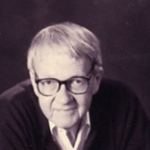


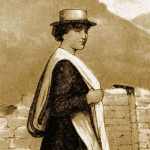

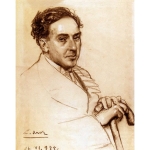





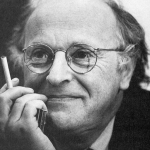


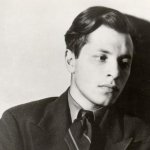
Comment form: